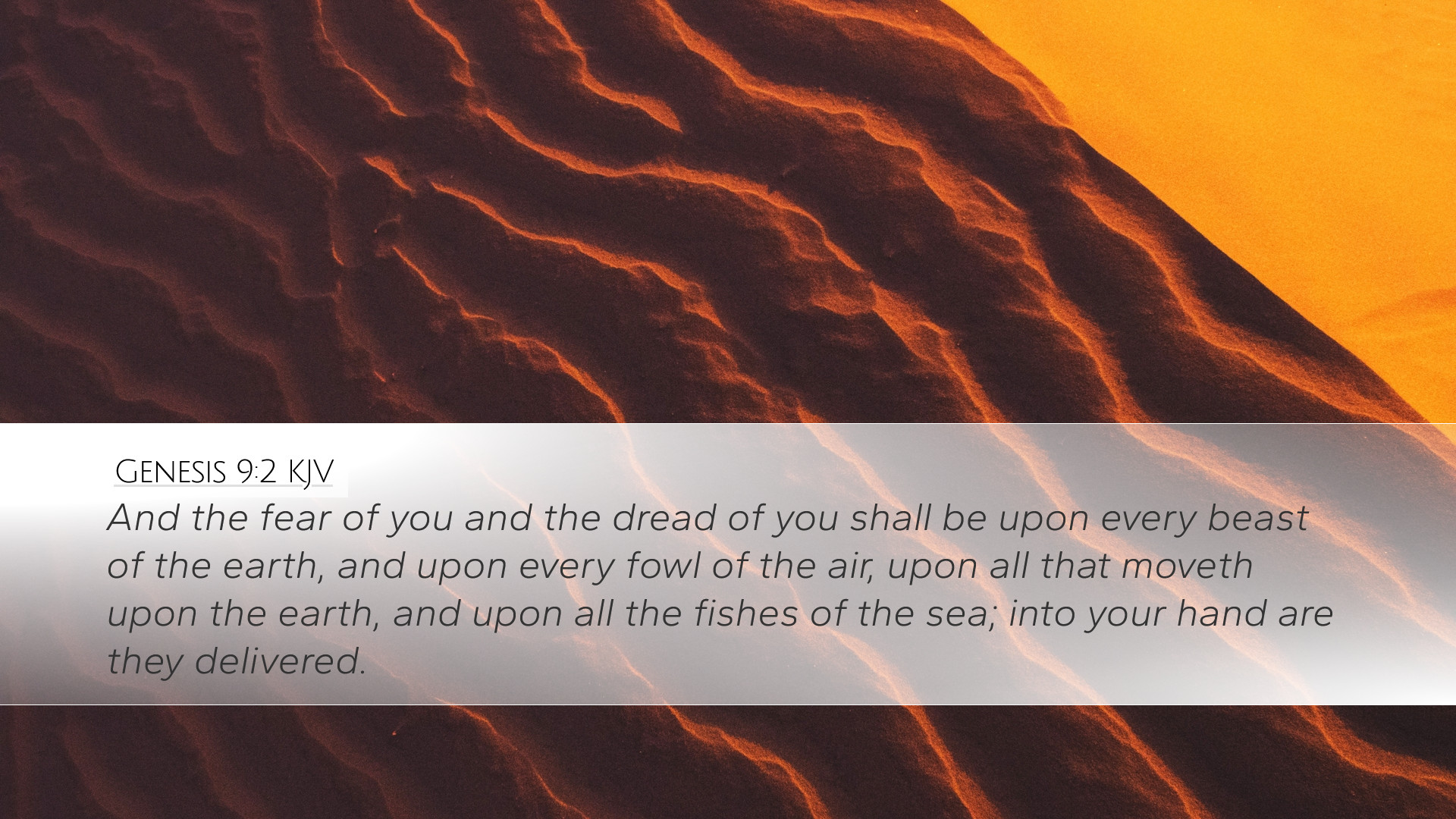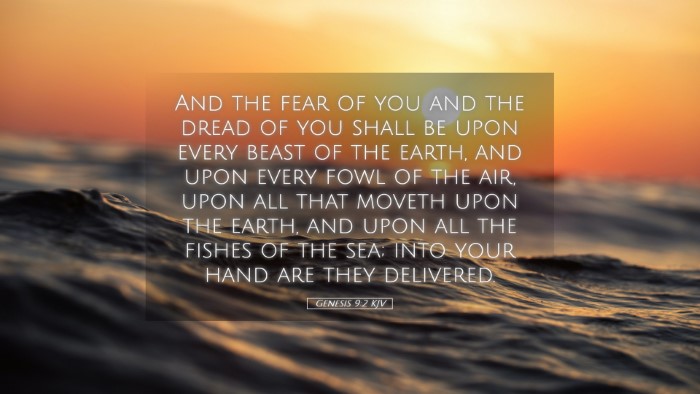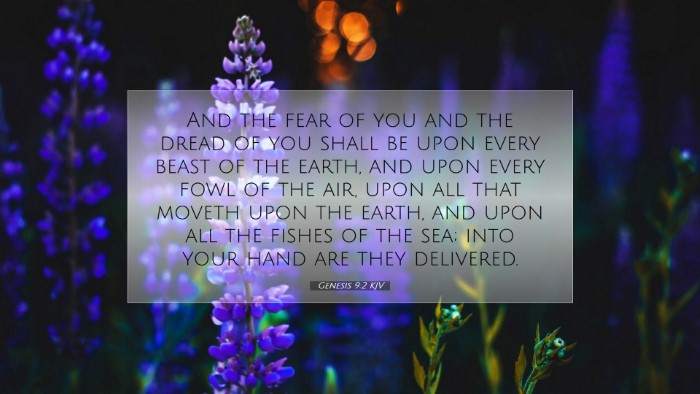Commentary on Genesis 9:2
Genesis 9:2 states, "And the fear of you and the dread of you shall be upon every beast of the earth, and upon every fowl of the air, upon all that moveth upon the earth, and upon all the fishes of the sea; into your hand are they delivered." This verse comes in the context of God's covenant with Noah after the Flood, where He establishes a new order of creation and humanity's role within it.
Contextual Analysis
The passage is significant as it marks a shift in the relationship between humanity and the animal kingdom. Prior to the Flood, animals lived in a more harmonious existence with humans. The Flood, however, marked a divine judgment against the sinfulness of humanity, and the subsequent covenant is an act of grace and a directive for how humanity is to conduct itself moving forward.
Theological Insights
- Fear and Dominion: The fear and dread mentioned here indicates a new dynamic in which animals instinctively recognize human authority. Matthew Henry points out that this fear is a necessary aspect of dominion, ensuring that humanity can responsibly steward the creation entrusted to them.
- Creation's Response: Albert Barnes notes that creation responds to the covenant with Noah. This reaction of the animals is indicative of the order God seeks to instill after the chaos of the Flood. It teaches humanity that dominion is not arbitrary but comes with responsibility.
- God's Sovereignty: Adam Clarke elaborates on the sovereign nature of God in giving mankind dominion over living things. This transfer of authority underscores God's power and intention in establishing roles within creation. It reflects God's purpose for humanity as caretakers of the Earth.
- Covenantal Significance: The covenant mentioned here is not merely a promise but an agreement that signifies a new beginning for humanity and nature. It points to the idea that God is actively involved in the governance of the world and has a plan for redemption, seen through His relationship with Noah and his descendants.
Exegetical Considerations
In linguistic analysis, the Hebrew terms used imply more than just fear; they connote reverence and acknowledgement of authority, shaping a foundational principle for humanity's dominion. Therefore, in the context of Biblical theology, understanding this verse requires recognizing humanity's role as God's image-bearers who are to govern with grace and stewardship.
Practical Applications
- Responsible Stewardship: The fear of animals is not an encouragement of cruelty but a call to responsible stewardship. Pastors and theologians are encouraged to develop teachings that emphasize ecological responsibility, improving the relationship between humanity and nature.
- Evidences of Divine Order: This verse serves as an affirmation of God's divine order. For students of theology, it invites contemplation on the implications of divine governance and the natural world’s response to God's decree. Understanding this verse can lead to rich discussions on anthropology and environmental ethics.
- Covenantal Theology: The significance of covenant is central to both Old and New Testament theology. This passage can foster a deeper study into how covenants shape interactions between God, humanity, and all creation throughout Scripture.
Pastoral Reflections
For pastors, Genesis 9:2 serves as a profound reminder of the tension between humanity's authority and the responsibility that accompanies it. It challenges believers to consider how their actions align with God's intention for creation. The essence of the verse encourages sermons that urge congregants to live in harmony with nature while fulfilling their God-given role as caretakers.
Conclusion
Genesis 9:2 provides a critical reflection on the relationship between humanity and nature, affording insight into divine order and human stewardship. By understanding the theological, exegetical, and practical implications of this verse, scholars and pastors alike can draw from its rich well of meaning to inform their ministries and teaching. The dominion over creatures is not merely an exercise of authority but a partnership with God in the stewardship of His creation, invoking a response that is both reverent and responsible.


